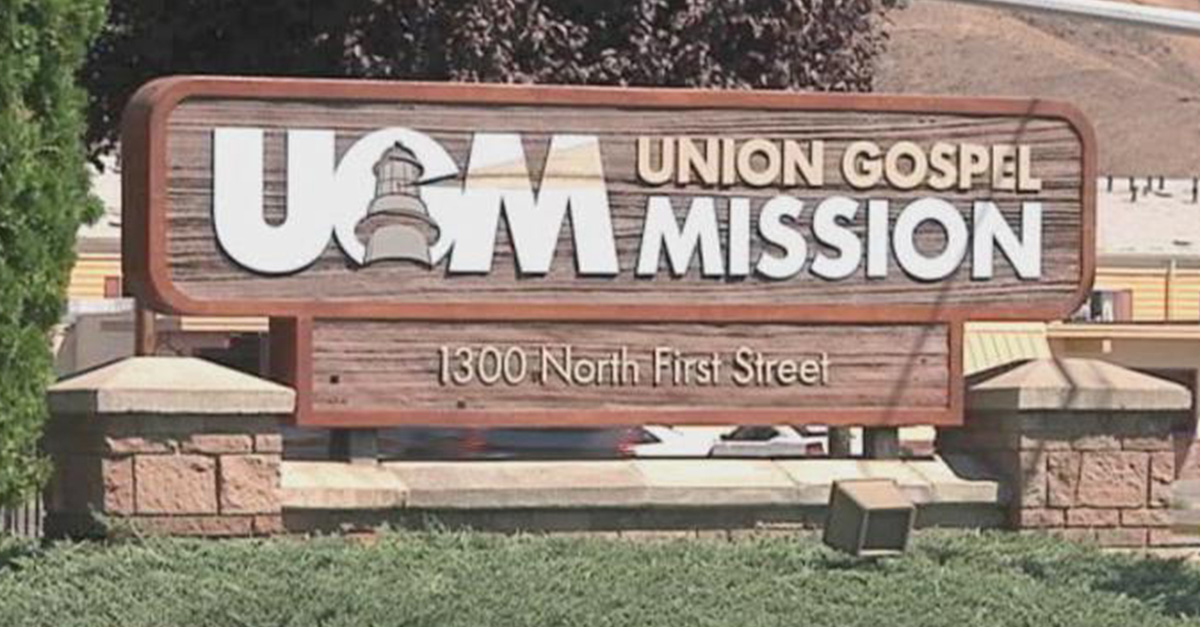


Get a free copy of Parental Rights & Education when you subscribe to our newsletter!

“Yakima Union Gospel Mission now faces substantial penalties under Washington state law for simply engaging in its constitutionally protected freedom to hire fellow believers who share the mission’s calling to spread the gospel and care for vulnerable people in the Yakima community.”
–RYAN TUCKER, ADF
Union Gospel Mission serves the local people through its homeless shelter, addiction-recovery programs, meal services, medical and dental clinics, employment programs, and other community services. It does so due to its religious purpose of spreading the Gospel and showing biblical love to the vulnerable and needy.
To accomplish this mission, it requires all of its employees to be co-religionists. Employees must not only to believe as the mission believes but also adhere to behavior requirements in order to show a Christian example to those they are serving. The behavior requirements include abstaining from any sexual conduct outside a biblical marriage of one man and one woman.
These hiring practices are likely to violate the new interpretation of the Washington Law Against Discrimination (WLAD), which was handed down by the Washington Supreme Court. In that case, Seattle Union Mission, a religious nonprofit, also hired only those employees who shared its beliefs.
The Washington Supreme Court ruled that the religious exemption to WLAD was only a ministerial exemption, or only applies to hiring of employees who are ministers directly responsible for proclaiming an organization’s religious faith. It stated that all other positions must be open to people who do not share the organization’s beliefs.
According to Union Gospel Mission, Washington Attorney General Robert Ferguson has taken the position that this interpretation means that religious organizations are prohibited from evaluating an applicant’s sexual orientation as part of the hiring process. Ferguson began investigating Seattle Pacific University, a Christian university, under the position that its lifestyle expectation policy, which prohibits employees “from engaging in sexual intimacy outside” of a biblical marriage of one man and one woman, discriminated due to sexual orientation. The school filed a lawsuit to stop the investigation, claiming it violated the First Amendment, but a judge in October dismissed the suit.
The Washington Supreme Court’s decision against Seattle Union Mission and the case against Seattle Pacific University led Union Gospel Mission to file a complaint in the United States District Court Eastern District of Washington. Union Gospel Mission claims that the WLAD as applied by the state supreme court discriminates against its right to free exercise of religion and freedom of speech. The mission had posted several job openings but received applications from people who either disagree with or are hostile to the mission’s convictions on marriage and sexuality. Union Gospel Mission has since removed the job postings to avoid a discrimination charge.
Yakima Union Gospel Mission is represented by Alliance Defending Freedom (ADF), which describes itself as “an alliance-building, non-profit legal organization committed to protecting religious freedom, free speech, parental rights, and the sanctity of life.”
ADF Senior Counsel Ryan Tucker, director of the ADF Center for Christian Ministries, said in a statement,
“The First Amendment allows religious organizations the freedom to hire those who share and live out their beliefs without being punished by the government. Yakima Union Gospel Mission now faces substantial penalties under Washington state law for simply engaging in its constitutionally protected freedom to hire fellow believers who share the mission’s calling to spread the gospel and care for vulnerable people in the Yakima community.”

The law as applied violates Union Gospel Mission’s right to religious freedom. It is a religious organization with a religious purpose, and as such, each and every employee is responsible for communicating the faith to those they serve.
It is only logical that the mission would want to only hire people who share its beliefs. It is not known how the district court will rule, but it seems likely that this case could be headed to the Washington Supreme Court where a similar ruling can be expected, especially given their decision against Seattle Union Mission. This could set up a trip to the highest court.
When Seattle Union Mission appealed to have its case heard by the U.S. Supreme Court, Justice Samuel Alito issued a denial of certiorari, upholding the Court of Appeals’ decision without agreeing or disagreeing because the case had not yet run its full course. Yet Justice Alito, joined by Justice Clarence Thomas, also said that the Washington Supreme Court’s decision “may warrant [the U.S. Supreme Court’s] review in the future,” explaining that the Washington Supreme Court’s “decision to narrowly construe [Washington’s] religious exemption” could “have created a conflict with the Federal Constitution.”
A religious organization must be able to operate and hire according to its own beliefs because those who don’t believe the same thing will introduce a competing agenda and, whether intended or not, undermine the organization’s purpose and principles. Galatians 5:7-9 says,
“You were running well; who hindered you from obeying the truth? This persuasion did not come from Him who calls you. A little leaven leavens the whole lump of dough.”
False teachers led the Galatian church to adopt a false, works-based religion in which to be saved Gentiles had to become Jewish and follow the Law. The same is true of any other false teaching.
The employees of Union Gospel Mission are to be ambassadors for Christ to the people they serve. If the people whom they serve see that employees are living a lifestyle inconsistent with the teaching of Christ, they may believe the Gospel isn’t true or that it is acceptable to be a Christian and live in contradiction to the Bible.
These employees could also influence other employees who are following Christ. If the mission is forced to hire people who disagree with its mission, those people are very likely to actively work against its purpose. The right of religious organizations to hire only those who share their religious views must be upheld, and the only way this is likely to happen is if the U.S. Supreme Court steps in and once again affirms the basic rights of religious liberty and free association.
Ready to dive deeper into the intersection of faith and policy? Head over to our Theology of Politics series page where we’ve published several long-form pieces that will help Christians navigate where their faith should direct them on political issues.

Notifications